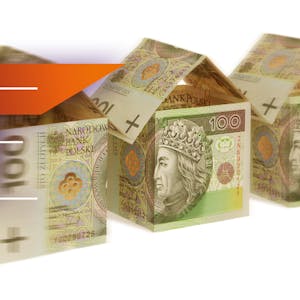Economie du sol et de l'immobilier I delves into the determinants of land and real estate prices, exploring their connection with interest rates, land rents, and market competition. Taught by an experienced economist, this course is tailored for non-economists seeking foundational understanding in economic principles relevant to real estate.
Participants will gain valuable insights into market mechanisms, price formation, equilibrium, and disequilibrium, as well as fundamental financial analysis. This knowledge is particularly beneficial for individuals interested in real estate investment, property development, feasibility analysis for construction projects, or even personal property acquisition.
The course comprises two parts, with the first part covering topics such as arbitration calculations, determinants of yield rates, buyer willingness to pay, and methods for calculating property values. The modules are structured with weekly segments, each comprising several explanatory videos and accompanying quizzes to reinforce learning.
Certificate Available ✔
Get Started / More Info
Economie du sol et de l'immobilier I is a comprehensive course comprising eight modules. Participants will explore topics such as arbitrage, market competition, property valuation methods, financial calculations, intertemporal analysis, and real estate evaluation techniques.
Economie du sol et de l'immobilier I commences with an introduction to foundational concepts, setting the stage for a deep dive into the intricacies of real estate economics.
Module 1 - Premiers concepts explores essential topics such as arbitrage, market competition, equilibrium, buyer willingness to pay, and auctions, providing a strong foundational understanding of real estate economics.
Module 2 - Plus-value et anticipations delves into the concepts of value, capital gains, arbitrage with capital gains, analysis of land prices, and expectations, offering valuable insights into advanced real estate economics concepts.
Module 3 - Autres points de vue et confrontation offers perspectives from property owners, thésaurisation, buyer-seller confrontation, price formation, and user perspectives, enhancing participants' understanding of real estate dynamics.
Module 4 - Financement et calculs financiers covers topics such as equity and foreign funds, fund costs, amortization, real estate income, and discounting, providing comprehensive insights into financial aspects of real estate investment.
Module 5 - Calculs intertemporels delves into growth, investment horizon, real estate speculation, property bubbles, and rental analysis, providing a comprehensive understanding of intertemporal dynamics in real estate.
Module 6 - Évaluation immobilière explores property evaluation methods, including cost-based evaluation, price-based evaluation, market price estimation, hedonic method, and income-price method, providing robust insights into real estate valuation techniques.
Conclusion de la première partie du cours summarizes the key learnings from the first part of the course, providing a comprehensive wrap-up of the foundational concepts covered in the modules.
This course delves into the intricate relationship between advertising and society, exploring its impact on culture, history, and the economy. Students will analyze...
Microeconomics Principles is a comprehensive exploration of economics beyond money. Delve into hidden costs, market dynamics, and societal impacts, gaining a new...
The Global Financial Crisis course provides an insightful exploration of the causes, responses, and aftermath of the recent global financial crisis, presented by...
Persuasive Communication equips learners with the skills to deliver impactful messages and connect with their audience through persuasive communication techniques....